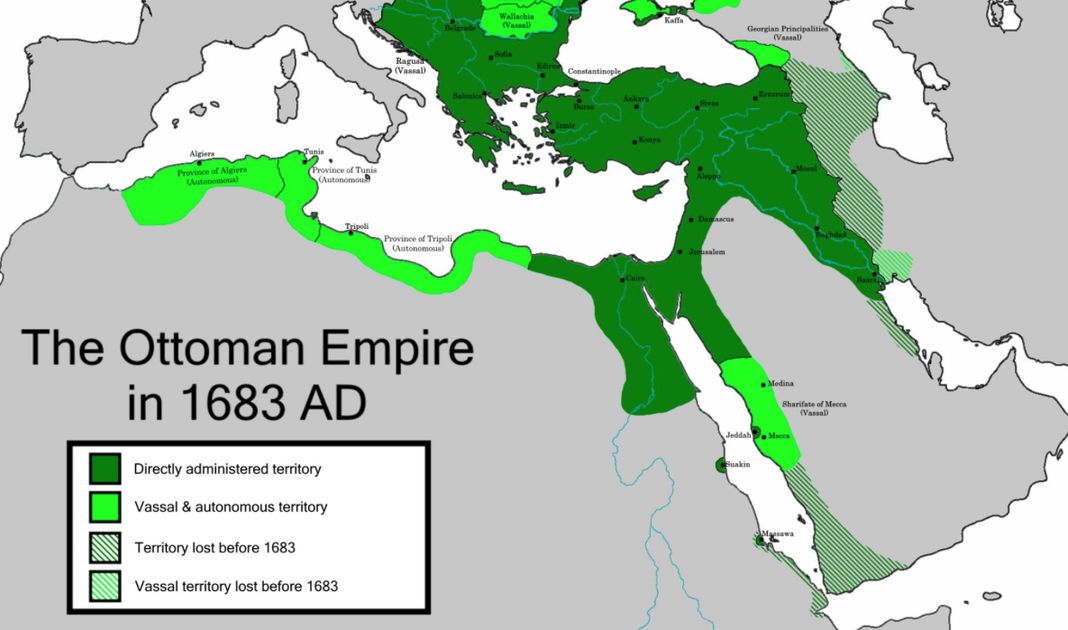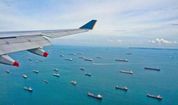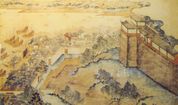Turkey’s New Global Posture: Grand Strategy and Geopolitical Imperatives. Part I

(Fot. Wikipedia)
The history of the twentieth century demonstrated that Turkey was able to win at Gallipoli, dominate Anatolia with a strong ethnic core, claiming independence and sovereignty over the entire peninsula, and to behave independently as she did during the Cyprus episode in the 1970s. In the XX century, Turkey demonstrated that it is not a “Sick Man of Europe” anymore. No other NATO member, except of course the United States, was allowed to exercise this kind of freedom but until the end of the Cold War, Turkey behaved more or less “properly”.
The Turkish grand strategy consists of two main words – “independence and sovereignty”. From this, it is possible to derive the following structure of the Turkish grand strategy for the upcoming several decades:
- Economic and Energy independence and self-sufficiency;
- To be a country possessing peaceful nuclear power and, in the medium-term future, a nuclear weapon;
- Turkey as a Space Power;
- Turkey as a leader of the Muslim world and the country which leads the Islamic Renaissance;
- A return to Ataturk’s Sovereign Foreign Policy. Ataturk’s main geopolitical imperative was to put Turkey in the middle of the confrontation between the USSR and the West. It seems that Turkey is returning to this geopolitical imperative once again;
- Will it be possible to continue to balance between maintaining an independent foreign policy and remaining part of NATO, attached to EU institutions?
- Turkey as a member of the global league of the Great Powers. As the main power representing the Muslim world and the Middle East, Turkey will one day demand a greater voice in the UN Security Council;
- Military and technological independence and self-sufficiency;
- Territorial gains in Syria and Northern Iraq. In a perfect scenario, to receive attractive concessions in Libya or in the new state which will appear after the division of Libya between two confronting coalitions;
- To re-shape the ethnic landscape in Northern Syria and Northern Iraq by using the Arabs. This is going to take, to some extent, the form of colonization which will cut once and for all the connection between the Kurds in Turkey and the Kurds in Iraq. It would be a solution to the Kurdish question for Turkey.
- To achieve the maximum from the pragmatic alliance or so called “Triangle Axis” between Tehran, Ankara and Moscow;
- To maintain cooperation with Russia on a deeply pragmatic basis for achieving its geopolitical and geostrategic aims.
Turkey as a crucial pillar of the Multipolar World
The first time the concept of the multipolar world appeared in a scientific article of the Soviet intellectuals at the beginning of the 1980s, it was because they understood that in order to survive in the upcoming decades, the Soviet Union needed help in establishing a more diverse world-geopolitical landscape, but in the 1990s and 2000s, only Russia was challenging the West and demanding the creation of this multipolar world. The situation really changed after the invasion of Iraq, when the West intruded into Turkey’s backyard without asking Turkey and treated Ankara almost as a semi-colony.
Gradually it became clear to the entire world that the prospect of Turkey’s future membership of the European Union had evaporated from the Western geopolitical agenda at least for the next couple of decades and also in Turkey. Ankara began to seek its own place in the multipolar world, the birth of which we are witnessing currently. Taking into account such levels of Islamization, it is possible to say that Turkey is moving towards true independence and sovereignty; and there is a logic behind this because its future would otherwise be vague.
The rise of China has emboldened the Triumvirate, but it is having to do all the “dirty” work in reshaping the Western dominant world order. These three – Russia, Iran and Turkey – are those whose history predestined them for permanent competition united against the West and its actions in the Greater Middle East.
NATO and Turkey
Turkey is changing NATO but not vice versa. The Turkish presence in NATO is undermining the entire principle of NATO when all members were subordinated to one hegemon. With the European powers, everything was excellent – they determined to follow this rule but the case of Turkey is different. The Cyprus episode demonstrated that if Turkey disagrees, she will be able to act independently without consulting the United States. In the second decade of the XXI century, Turkey acted much more independently than it had before and many NATO members feel that Ankara’s policies are directly targeting their national interests or even threats to their country’s stability.
The geopolitical dilemma for the West is that without Turkey, NATO will be deprived of a stable influence in the Middle East and her Southern Flank will be overwhelmingly undermined. In fact, without Turkey, there would arguably be no such thing as the Southern Flank of NATO. Turkey is playing with this western geopolitical dilemma, played with it in the XX century and will do so in the XXI century. The situation is deteriorating because of the process of escalation in the Eastern Mediterranean. France, Greece, Italy, Spain and Turkey are all NATO members and in Libya, they are represented by different factions. Such a situation was unimaginable during the Cold War. These quarrels are reaching the NATO headquarters and the future of such a situation is unclear. As a result, Turkey’s future in NATO will depend on the general situation in the Mediterranean and the Middle East. The protracted conflicts are not going to help NATO – they will only create further internal cleavages between member-states.
2023 Vision: Turkey’s 2023 Industry and Technology Strategy
In 2010, Turkey published a document-program to indicate all its main strategic goals in the economic and social realms. 2020 marks the one hundred year anniversary of the founding of the Turkish Republic. These goals were initiated by Recep Erdogan. Interestingly, the architect of Turkish foreign policy, Ahmet Davutoğlu, aimed at a deeper integration of the country into EU institutions and a stronger commitment to the Euro-Atlantic system of alliances. The symbolic turn from these two fundamental traditional premises of Turkish foreign policy occurred a couple of months before the coup d’état in Turkey in July 2016 and the rapprochement with Russia. Davutoğlu was and still is utterly against such a geopolitical gamble on the part of Ankara. The Kremlin praised the expulsion of Davutoğlu from Erdogan’s close circles as evidence of Turkey’s determination to undertake a new foreign policy, independent from the West.
In September 2019, Turkey introduced its 2023 Industry and Technology Strategy. The document directly pointed out that Turkey aimed to make the country competitive in critical technologies and to turn it into an important player in the global league. The phrase “global league” is crucial, as it manifests the country’s geopolitical ambitions. The two main components of this road map document are “technology-oriented industrialization” and the “digital transformation.” These goals evidence that the country is prone to go through the Chinese, Russian and partially Iranian paths in terms of the development of independence from the Western industrial economy and technological sectors. The Turkish electronic car “TOGG” can serve as evidence of a move in this direction, projected in 2017 and produced in 2019.
Autor
Ridvan Bari Urcosta
Senior Analyst at Strategy&Future






Trwa ładowanie...